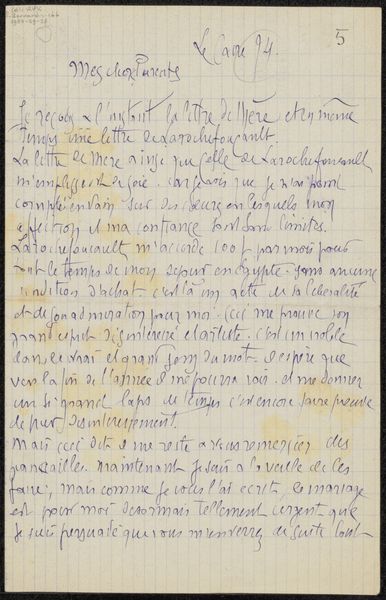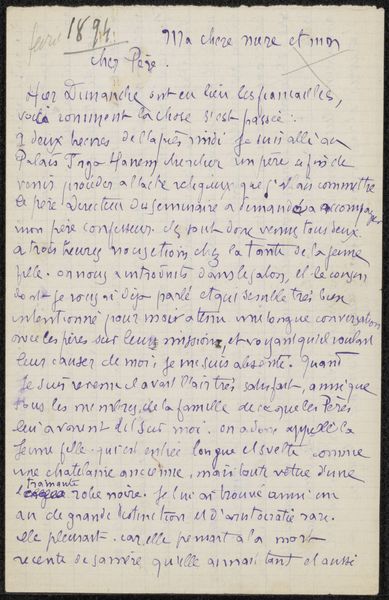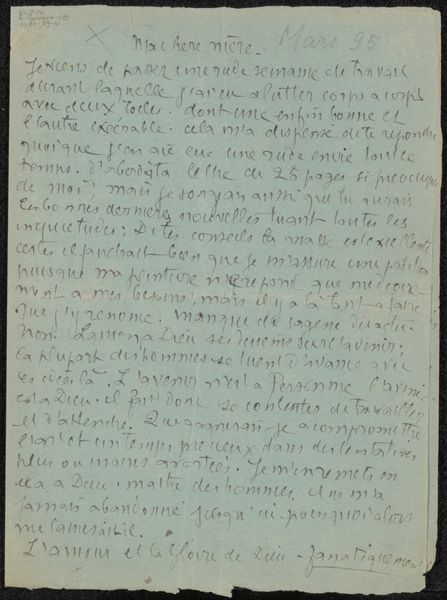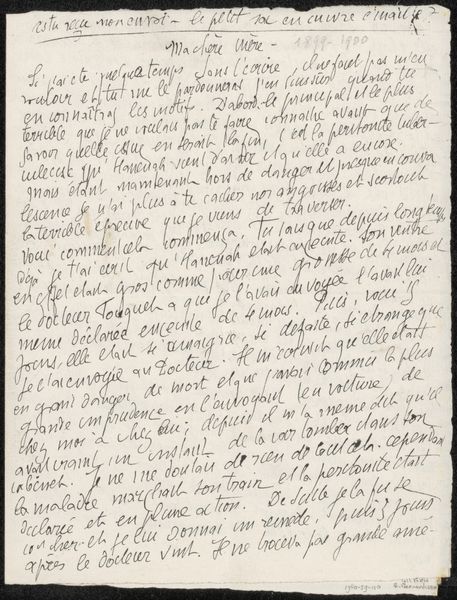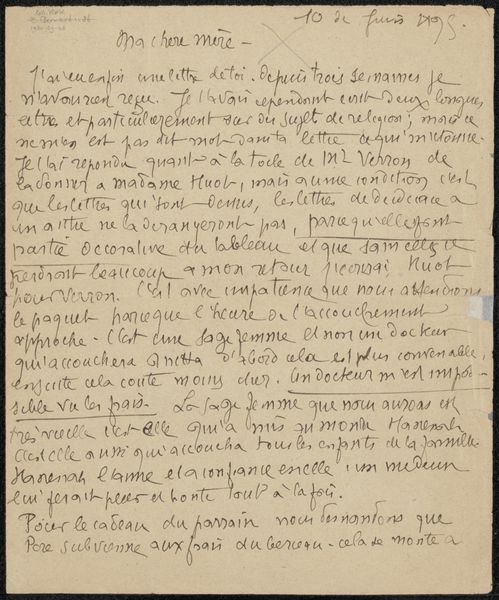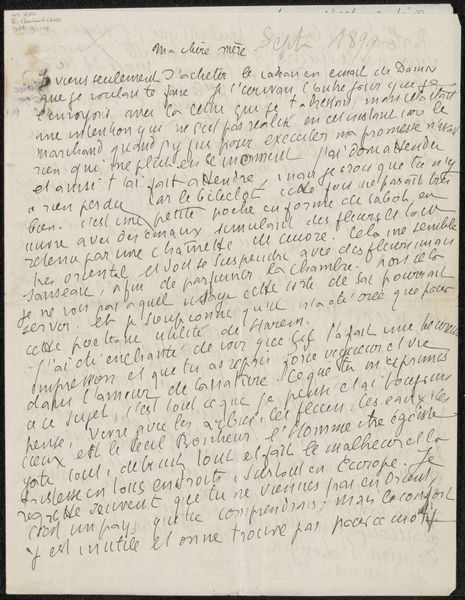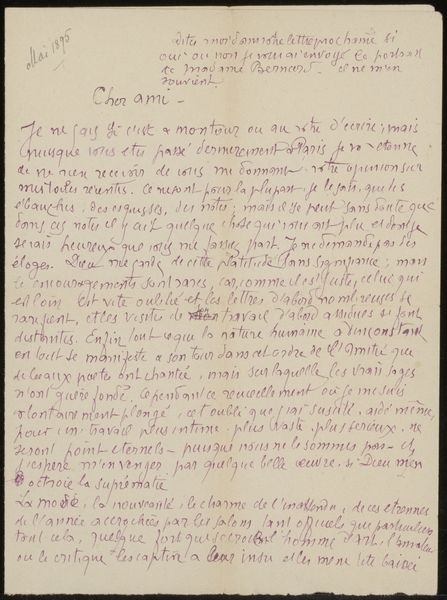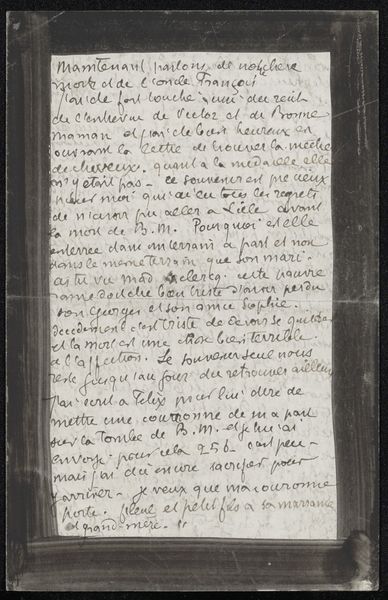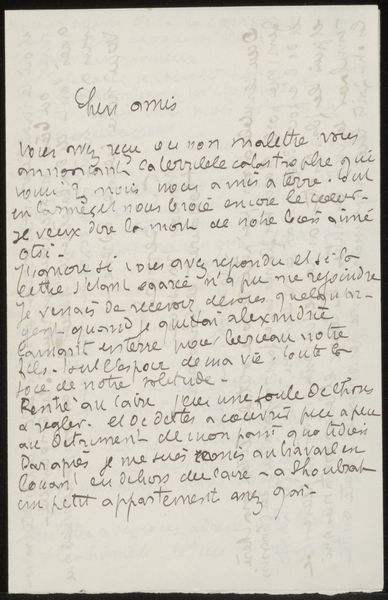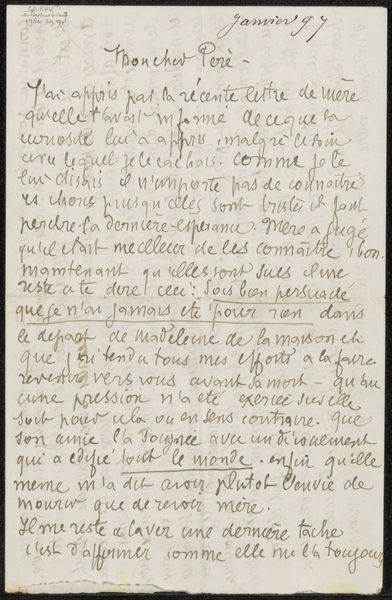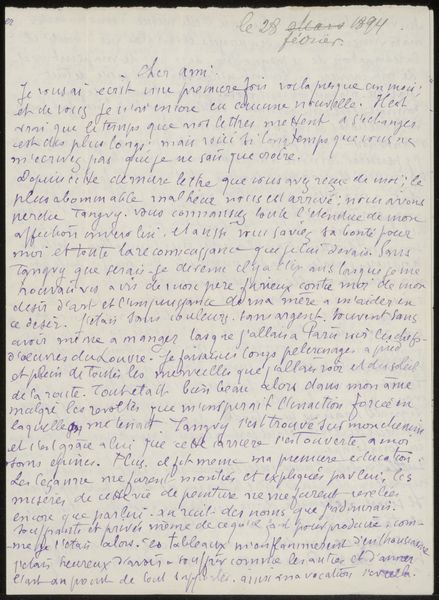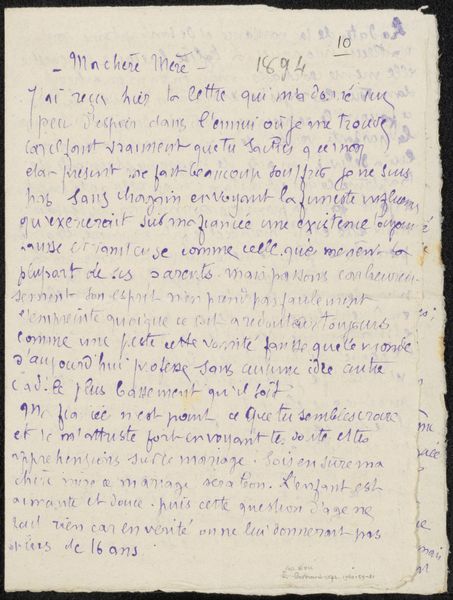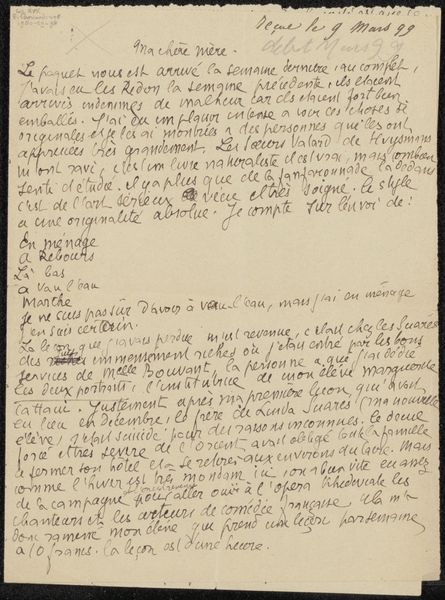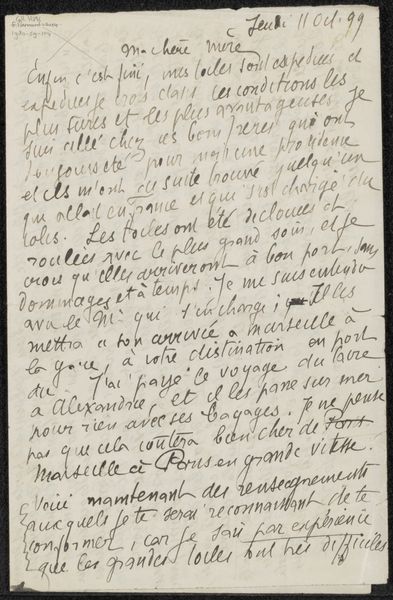
drawing, textile, paper, ink
#
drawing
#
hand written
#
hand-lettering
#
hand drawn type
#
hand lettering
#
textile
#
paper
#
personal sketchbook
#
ink
#
hand-written
#
hand-drawn typeface
#
sketchbook drawing
#
sketchbook art
#
small lettering
Copyright: Rijks Museum: Open Domain
Curator: Let's look at this drawing, "Brief aan Héloïse Bernard-Bodin," potentially from 1894 by Émile Bernard. The hand-written text immediately draws my attention, demanding we consider the means and labor involved in its production. Editor: Yes, it's an intimate piece; the small lettering and the artist's handwriting suggest a personal message. What catches your eye? Curator: As a materialist, I'm interested in more than just the emotional content. Look at the materials – the paper, the ink, perhaps even textile remnants suggested in the metadata. These weren’t readily available, cheap items. What decisions were made to source these? How did the cost of materials influence production of artworks versus private correspondence? Editor: So, it’s not just what the letter says, but the material conditions surrounding its creation? Curator: Precisely! The labor of writing – the time, effort, and skill involved – becomes a central focus. Was this hurried or carefully drafted? What was Bernard’s social class and how did it impact his access to materials and, frankly, his literacy? The means of communication shape our understanding of the message. The letter isn’t just information, it's a material object imbued with social meaning. Editor: I see. It makes you consider how even something as personal as a letter is shaped by broader social and economic forces. Thanks! Curator: Indeed, examining art through its materials and production reveals much about its place within a complex network of social relations.
Comments
No comments
Be the first to comment and join the conversation on the ultimate creative platform.
